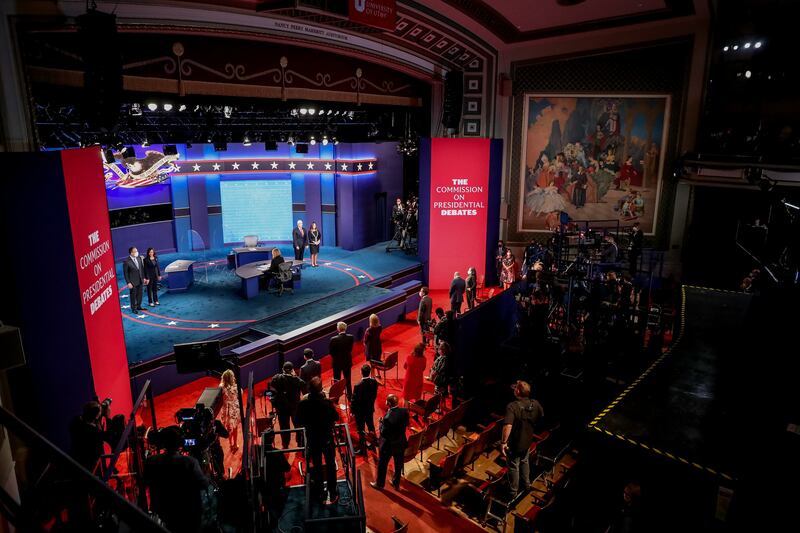If nothing else, Wednesday’s vice presidential debate at the University of Utah made debates watchable again. If that ends up being Salt Lake City’s debate legacy, it is one to be cherished.
Admittedly, the bar for a good debate was low in the wake of the first presidential encounter between President Donald Trump and Vice President Joe Biden, which was marred by constant interruptions, insults and no coherent explanation of policy positions.
Wednesday night’s debate was civil, but sadly lacked direct responses from the candidates to specific questions.
And by the time moderator Susan Page got to the final question of the night — an excellent one from Springville, Utah, eighth grader Brecklynn Brown about how to end all the anger and violence in politics — it almost seemed a week too late.
It might have fit better if posed to Trump and Biden. However, it remains an extremely relevant question that expresses the frustrations of many Americans who long for more cooperative government, and for the goodwill that recognizes the opposing party also has the nation’s best interests in mind.
It may have stolen the show.
Not that Wednesday’s debate between Sen. Kamala Harris, D-Calif., and Vice President Mike Pence was a perfect display of civility. Americans saw plenty of sarcastic facial expressions and head-shaking, a few interruptions and constant violations of time limits, mostly by Pence.
American people got some discussion of issues and ideas. And the candidates entered the debate with one common goal, to look presidential. Unlike any other presidential election in history, this year’s vice presidential candidates deserve extra scrutiny due to the ages of the presidential candidates. If reelected, Donald Trump would be 74 on inauguration day. Joe Biden turns 78 next month. Both of their running mates needed to act as if they could be trusted with the leadership of the nation, if necessary.
On that score, both Harris and Pence succeeded. Neither appeared rattled under pressure. Each delivered positions, arguments and accusations calmly. Even their occasional indignations were controlled. They weren’t just addressing each other. They were showing Americans how they could be expected to react under the pressures of leadership, or when confronting belligerent foreign adversaries.
Still, much more could have been accomplished.
Will Biden and Harris pack the Supreme Court?
No answer.
Do Trump and Pence have a plan to keep coverage of preexisitng medical conditions?
No answer.
Pence changed the subject when questions were asked about the lack of social distancing and mask wearing at White House events. He declined to directly confront the president’s refusal to commit to a peaceful transfer of power.
Harris never explained her position on the so-called “Green New Deal,” which Biden has said he opposes.
Each clearly had plans to ram home certain points regardless of the question asked. For Harris, it was health care and the president’s response to the pandemic. For Pence, it was to emphasize the president’s successes while portraying the Democratic ticket as dangerously liberal.
Pundits have made much about how few undecided voters there seem to be in the United States. Americans are polarized, and many people appear fixed unalterably and, to Springville student Brecklynn Brown’s point, angrily, in one camp or the other.
But the real fight may well be over those who are wavering as to whether to vote at all. In that case, Wednesday’s debate provided a strong indication of the positions, platforms and leadership abilities of the two tickets. It helped America decide.
Not to be ignored, this debate was an overwhelming success for the Utah Debate Commission and the University of Utah. Its leaders managed a successful event important to the future of the United States, and they did so in the middle of a pandemic that, among other things, recently put the president in the hospital.
We hope this bodes well for future such events in Utah.

